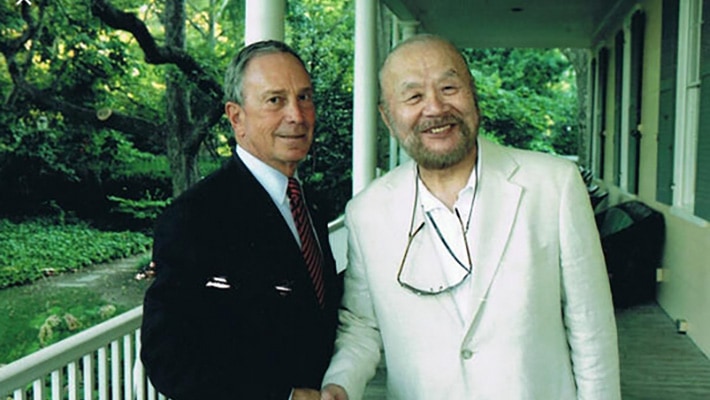Share This Article

Read the original story in Japanese at Shukan NY Seikatsu
Translated by Rebecca Suzuki
Tommy Tomita, who dedicated his career to building a cultural bridge between his native Japan and adopted home of Harlem, passed away on January 11 at a New York hospital from pneumonia. He was 80 years old.
Tomita competed in the 1972 Sapporo Winter Olympics as a luger. After that, he became the owner of a jazz club called “Valentine” in Tokyo’s Roppongi district, which birthed many stars like Yasuko Agawa, Marlene, Kaho Shimada, and Malta.
He immigrated to New York in 1985, and since then has helped to bring both amateur and professional Japanese performers onto the stage of the Apollo Theater. Tomita also established The Harlem Japanese Gospel Choir with the help of the churches of Harlem. In 2010, after 27 years of entering the competition, the choir came in first place at McDonald’s Gospelfest, the most prestigious national gospel competition.
Tomita was influenced by his father’s love of jazz, and grew up listening to FEN, or the Far East Network, a network of American military radio and television stations primarily serving U.S. forces in Japan.
When he first immigrated to New York, he became a jazz commentator for Japanese magazines, television, and radio. Back then, there was no information about Harlem in Japanese tourist guidebooks or maps. But in 1986, Tomita provided information about the neighborhood for one of Japan’s most popular travel guides, “Chikyu no Arukikata.” Eventually, Tomita’s friends from Japan whom he’d guided to local jazz clubs began encouraging him to offer official tours around Harlem.
Responding to the demand, Tomita became the first Japanese native to host tours of the uptown neighborhood. He also became a board member of the Apollo Theater, and brought many Japanese performers of all levels to the famed venue’s “Amateur Night” including Ken Hirai, Tortoise Matsumoto, Deep Tough, Yukie Kobayashi, and Tatsuo Kamon.
He developed close friendships with local performers and introduced several musicians, dancers, and artists to Japan, even organizing concerts. After 35 years living in Harlem, he became a member of the Harlem Chamber of Commerce. In 1994, he received the “Dr. Martin Luther King Jr. Excellence Award,” becoming its first Asian recipient.
Tomita authored several publications, including “Harlem Speaks” (published by Shinjuku Shobo), “New York City Theater Guidebook” (published by Nanaken) and many magazine and newspaper articles about jazz and Harlem. He’s also written columns for several popular Japanese guidebooks.
Tomita had retired five years ago, leaving business partner Kimiko Matsuo in charge.
